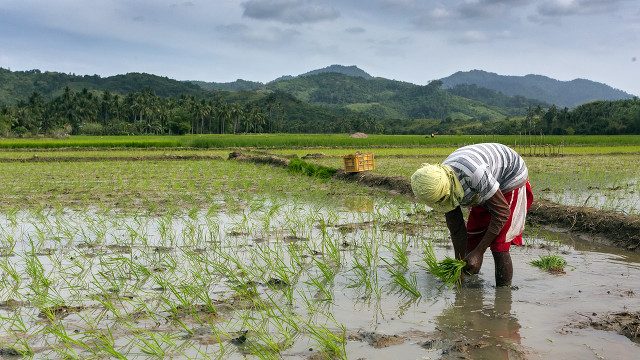SUMMARY
This is AI generated summarization, which may have errors. For context, always refer to the full article.

MANILA, Philippines – During the APEC summit environmental advocates as well as agriculture groups joined forces to ask that the APEC leaders stop GMO policy integration.
As part of its efforts to combat food insecurity and a low income for farmers, the Philippine government has become one of the major proponents of using genetically modified organisms (GMO). In March 2015, the Philippines planted genetically modified corn on 831,000 hectares, making it the 12th largest grower in the world.
Greenpeace Philippines and its supporters, on the other hand, opposed the creation of what they call “a single market and production base that would “set a ‘common standard’ for GMO crops.” They base their objection on the lack of regulation on “field-testing, commercialization, and other related activities.”
Risk vs return
Another of Greenpeace’s biggest concerns surrounding the GMO policy integration are the risks involved in planting GMOs. Although the government attests to the benefits of GMOs, the environment and agriculture advocates believe otherwise.
In a statement, Greenpeace Southeast Asia’s Zelda Soriano opposed the notion that GMOs would solve many of the problems in farming, saying there is “no scientific consensus on the safety of GM crops and there are still no established results that support its cost and benefit.”
However, Dr Saturnina Halos, Chair of the Philippine Department of Agriculture’s Biotechnology Advisory Team, said GMOs had already helped 400,000 farmers increase their income.
In a study done with the United States Agency for International Development (USAID), they found that of the 400,000 farmers, roughly 60% of them had been able to send their children to universities. These figures, they say, show that farmers are becoming more financially secure.
Alternative to GMOs
Instead of GMOs, Greenpeace proposed using ecological agriculture as an alternative which the group described as “a farming method that combines modern science and innovation with respect for nature and biodiversity.”
Ecological agriculture supposedly prioritizes sustainability and maintaining biodiversity, doing away with the risks involved in GMOs, according to its advocates.
Greenpeace said ecological agriculture would answer both the problems of food insecurity and farmer’s declining incomes. It lauded the benefits of ecological agriculture saying, “It places people and farmers – consumers and producers, rather than the corporations that control food supply – at its very heart.” – Rappler.com
Add a comment
How does this make you feel?
There are no comments yet. Add your comment to start the conversation.